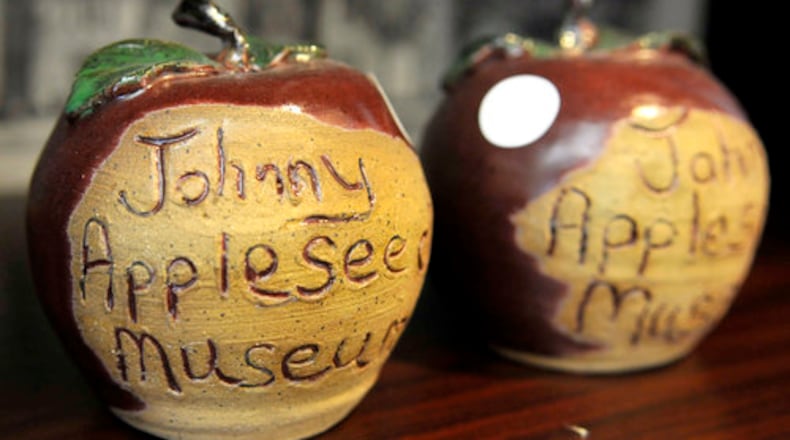Franklin University sold Browne Hall, home of the museum and educational center since 2018, to the Johnny Appleseed Foundation this June, according to foundation board member Drew McLandrich.
Since its purchase of the 150-year-old building, the foundation has funded work to the building’s roof, gutters and other work, McLandrich said.
The Johnny Appleseed Foundation is working with a Vandalia-based Exhibit Concepts, which produced exhibit designs for museums like the Bradford Railroad Museum in Ohio and the Red River Valley Museum in Texas, to design an updated layout for the museum.
McLandrich said the foundation aims to update exhibits to include opportunity for interaction and possibly new features like audio tours or an app to guide museumgoers through their tour, but board members are working to determine those details over the next few months.
The museum hopes to continue appealing to a variety of people, including children, researchers and casual tourists. The museum offered the largest collection of information about John Chapman, or Johnny Appleseed, preserving and teaching his values: generosity, humility, stewardship, thrift, entrepreneurship, and caring for one’s fellow man, McLandrich said.
When thinking about Chapman, many may picture a smiling man donning a pot for a hat, McLandrich said, but the man is much more than a part of local lore.
“He often gets lumped with Pecos Bill and Paul Bunyan, but he was a real man and he walked this land,” McLandrich said.
Chapman was an entrepreneur and a missionary, and his apple tree saplings and nurseries had a positive impact on settlers in Ohio, parts of Pennsylvania into Indiana as he pushed for further settlement. Cider produced from Chapman’s apples was also used as a reliable, sanitary drinking source, as water was often unsanitary at the time, McLandrich said.
Chapman also had personal ties to the area. He personally knew John James, of Urbana, a lawyer and banker who donated the land for Urbana College, later Urbana University, according to the foundation.
Browne Hall, located just outside the former university campus, was donated to Urbana University around 1918. The Johnny Appleseed Museum and Education Center moved to Browne Hall in 2018 from their former residence at Urbana University’s Bailey Hall.
About the Author

